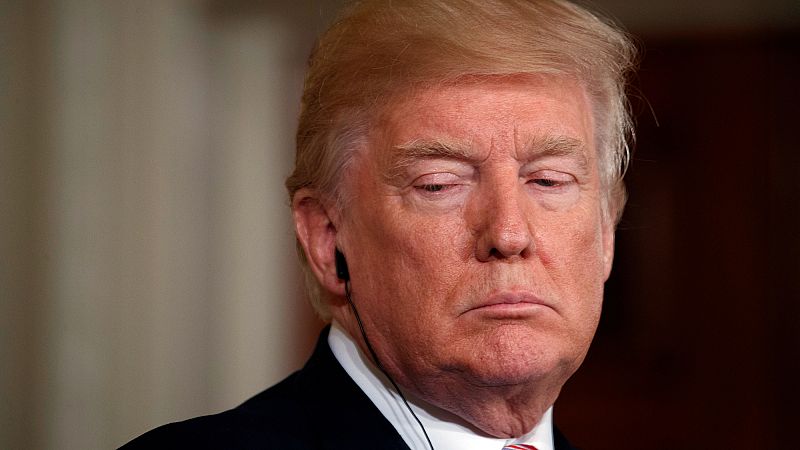
A European Commission official has criticised a recent US investigation into pharmaceutical imports, calling it an unjustified step toward potential tariffs that could harm both European and American healthcare systems.
Earlier this month, the Trump administration initiated a probe on pharmaceutical imports under Section 232 of the Trade Expansion Act of 1962, a law that allows tariffs on such imports deemed to threaten national security.
While no tariffs have been implemented yet, EU officials are concerned the investigation is a precursor to trade action.
"We do not agree with this investigation," Elena Kamilarova, a trade official at the European Commission, said at an event in Brussels. "[We do not agree with] the tool nor the concept of it, namely, looking at it as if imports of pharmaceuticals can pose national security risks.”
Pharmaceutical companies on both sides of the Atlantic have voiced alarm over the potential consequences of US tariffs, warning of rising drug prices and disruptions to vital global supply chains.
These concerns are particularly acute for Ireland, home to major manufacturing operations for American firms such as Pfizer, Johnson & Johnson, and Eli Lilly. Other key exporters include Germany, Belgium, and Denmark.
In 2024, pharmaceuticals were the largest EU export to the US, valued at $127 billion (€117 billion), a figure now at risk due to the ongoing investigation. Flow of medicines is now at risk of disruption, with potentially severe consequences for patients and businesses alike.
Thibaut L’Ortye from the American Chamber of Commerce in the EU also voiced concern about the probe, saying that its launch lacked support from US businesses and could strain the already fragile transatlantic trade relationship.
Despite challenges, pharma is one area where US and EU interests align, particularly in addressing supply chain vulnerabilities, L’Ortye said at the European Policy Event on critical medicines.
"You have a recognition on both sides of the Atlantic that you need to be thinking about vulnerabilities and supply chains," he added.
The EU has warned that any move toward tariffs could undermine access to critical medications, lead to shortages, and increase healthcare costs on both continents.
A new report commissioned by the industry’s US trade group and obtained by Reuters estimates that a 25% tariff on pharmaceutical imports would increase US drug costs by nearly $51 billion annually.
Conducted by Ernst & Young, the analysis predicts that US drug prices could rise by as much as 12.9% if the cost is passed on to consumers.
In 2023, the US imported $203 billion in pharmaceutical products, 73% of which came from Europe—mainly Ireland, Germany, and Switzerland. That same year, total US sales of finished pharmaceuticals reached $393 billion.
“European generic companies for once actually play quite a strong role in addressing shortages in the US, and the US has more shortages than we do and a higher dependence than us on suppliers in Asia, especially active pharmaceutical ingredients (APIs) suppliers,” said the Commission’s Kamilarova.
Washington sources around 80% of its active pharmaceutical ingredients (APIs) from China, India, and the EU. In 2024, pharmaceuticals were the top US import from the EU, including $127 billion (€117 billion) worth of semaglutide, a key component in popular weight-loss medications.







